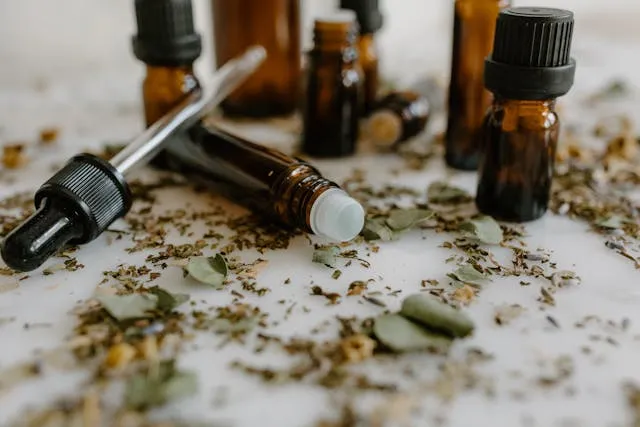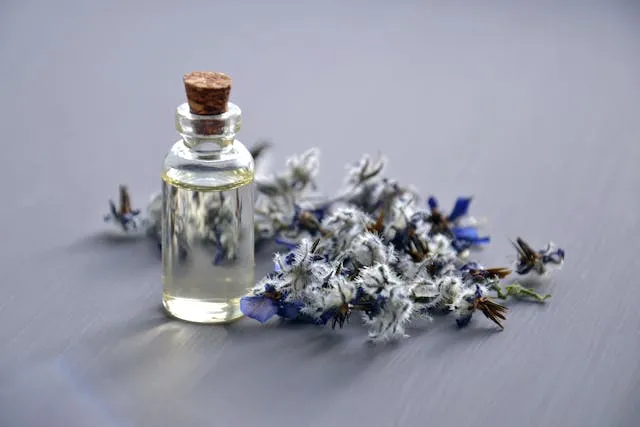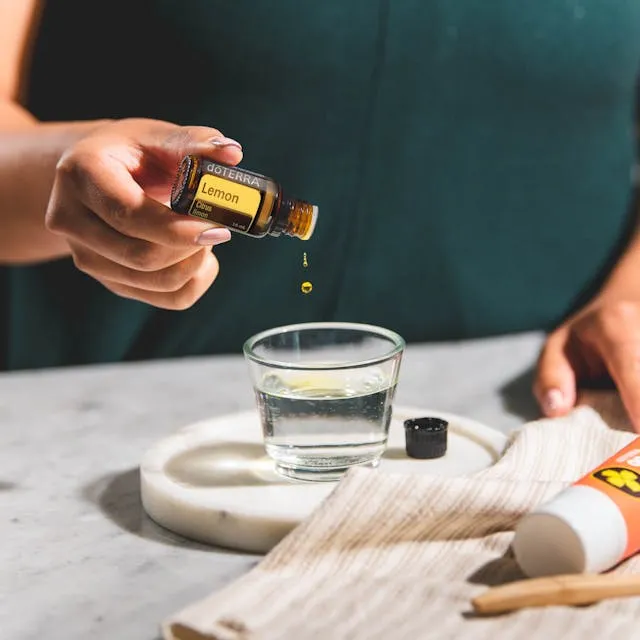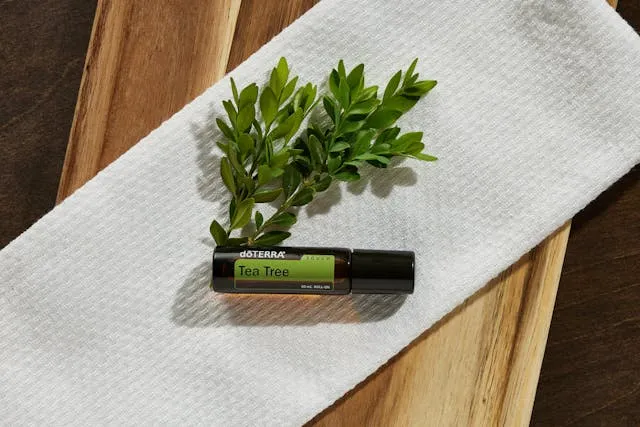Dealing with a greasy scalp can be quite a frustrating experience. You might wake up in the morning, look in the mirror, and wonder how your hair went from fresh and clean to oily and limp overnight. It’s a common struggle, but the good news is there are natural solutions that can help!
Have you ever thought about essential oils? These concentrated plant extracts not only smell amazing but also have various therapeutic benefits. They can be powerful allies in managing an oily scalp and promoting healthy hair. In this post, we’ll explore the best essential oils for greasy scalps, how they work, and how to incorporate them into your hair care routine.
Let’s get started on your journey to a healthier scalp!
Understanding the Causes of a Greasy Scalp
What Makes Your Scalp Oily?
Before diving into the essential oils, it’s essential to understand what causes an oily scalp in the first place. Several factors contribute to excessive oil production:
- Sebaceous Glands: These glands in your scalp produce sebum, which is a natural oil that helps keep your hair and scalp moisturized. However, overactive sebaceous glands can lead to excessive oiliness.
- Hormonal Changes: Fluctuations in hormones, such as during puberty, menstruation, or pregnancy, can trigger oil production.
- Diet: Consuming a diet high in processed foods and sugars can affect your skin’s oil production. A healthy diet plays a crucial role in maintaining balanced oil levels.
- Hair Products: Using heavy or greasy hair products can lead to a build-up on the scalp, making it feel oily and unclean.

Why Should You Consider Essential Oils?
Essential oils can provide a natural way to balance oil production without stripping your scalp of its natural moisture. They possess antibacterial and antifungal properties, helping to keep your scalp clean and healthy. Plus, they can add a delightful fragrance to your hair care routine!
The Best Essential Oils for Greasy Scalp
Tea Tree Oil
Have you heard of tea tree oil? This essential oil is a superstar when it comes to scalp health!
- Benefits: Tea tree oil is known for its antimicrobial and antiseptic properties. It can help reduce excess oil while combating dandruff and scalp irritation.
- How to Use: Mix a few drops of tea tree oil with a carrier oil, such as coconut or jojoba oil, and massage it into your scalp. Leave it on for about 30 minutes before washing it out with shampoo.
Lavender Oil
Lavender oil isn’t just for relaxation; it’s also great for your scalp!
- Benefits: Lavender oil has soothing properties that can help alleviate scalp irritation. It balances oil production and promotes a healthy environment for hair growth.
- How to Use: Add a few drops of lavender oil to your shampoo or conditioner. Alternatively, you can mix it with a carrier oil and apply it directly to your scalp.

Peppermint Oil
Looking for a refreshing and invigorating option? Peppermint oil might be your go-to!
- Benefits: Peppermint oil helps to stimulate circulation in the scalp, which can promote hair growth while balancing oil production. Its cooling effect can also provide a refreshing sensation.
- How to Use: Dilute peppermint oil with a carrier oil and massage it into your scalp. Leave it on for 15-20 minutes before washing it out.
Lemon Oil
Lemon oil isn’t just for lemonade; it’s a fantastic addition to your hair care routine!
- Benefits: Lemon oil is a natural astringent, which means it can help remove excess oil and impurities from your scalp. It also has antibacterial properties that keep your scalp clean.
- How to Use: Combine a few drops of lemon oil with a carrier oil or add it to your shampoo. Make sure to rinse thoroughly, as citrus oils can be potent.

Rosemary Oil
Rosemary oil is not only aromatic but also beneficial for oily scalps!
- Benefits: This essential oil is known for its ability to improve circulation and reduce excess sebum production. It can also promote hair growth and enhance scalp health.
- How to Use: Mix rosemary oil with a carrier oil and massage it into your scalp. You can also add it to your shampoo for a refreshing wash.
How to Incorporate Essential Oils into Your Hair Care Routine
Create a Scalp Massage Oil
One effective way to use essential oils is by creating a scalp massage oil. Here’s how you can do it:
- Ingredients: Choose your preferred essential oil (like tea tree, lavender, or peppermint) and a carrier oil (like jojoba or coconut oil).
- Mixing: Combine 5-10 drops of essential oil with 2 tablespoons of carrier oil in a small bowl.
- Application: Part your hair into sections and apply the oil mixture directly to your scalp. Use your fingertips to gently massage it in, stimulating blood flow and promoting relaxation.
Use in Hair Masks
Another fantastic way to utilize essential oils is in DIY hair masks. You can enhance the benefits of your regular hair mask by adding essential oils.
- Example Recipe:
- Ingredients: 2 tablespoons of plain yogurt, 1 tablespoon of honey, 5 drops of lavender oil.
- Instructions: Mix the ingredients in a bowl until smooth. Apply the mixture to your scalp and hair, focusing on the roots. Leave it on for 30 minutes before rinsing it out.

Add to Your Shampoo or Conditioner
Have you thought about adding essential oils directly to your shampoo or conditioner? It’s an easy way to incorporate their benefits into your regular routine.
- How to Do It: Simply add 5-10 drops of your chosen essential oil to your shampoo or conditioner bottle. Shake well before each use to ensure even distribution.
- Why It Works: This method allows you to enjoy the benefits of essential oils every time you wash your hair!
Tips for Best Results
Consistency is Key
While essential oils can offer great benefits, consistency is essential. Aim to incorporate them into your hair care routine at least 2-3 times a week for the best results. Whether you’re using them in a massage oil, hair mask, or added to your shampoo, regular use will help balance oil production over time.
Patch Test Before Use
Before applying any essential oil directly to your scalp, it’s crucial to do a patch test. Apply a small amount of diluted oil to a discreet area of the skin and wait 24 hours to see if any irritation occurs. This step will help ensure you don’t have an adverse reaction.
Avoid Overuse
While essential oils can be incredibly beneficial, overusing them can lead to irritation. It’s best to start with a small amount and gradually increase as needed. If you notice any irritation or discomfort, reduce the frequency of use or the amount you apply.

Other Natural Remedies for Greasy Scalp
Aloe Vera
Aloe vera gel is a fantastic natural remedy for greasy scalps. It helps balance oil production while soothing irritation. Simply apply pure aloe vera gel directly to your scalp, leave it on for 30 minutes, and then rinse.
Apple Cider Vinegar
Apple cider vinegar (ACV) is known for its clarifying properties. It can help remove excess oil and build-up from hair products. Mix equal parts of ACV and water, apply to your scalp after shampooing, let it sit for a few minutes, and rinse thoroughly.
Witch Hazel
Witch hazel is an astringent that can help reduce oiliness on the scalp. Mix witch hazel with water and use it as a scalp rinse after washing your hair. This can help control excess oil and keep your scalp feeling fresh.
Conclusion: Embrace the Power of Essential Oils
Managing a greasy scalp doesn’t have to be a daunting task. By incorporating essential oils like tea tree, lavender, peppermint, lemon, and rosemary into your hair care routine, you can enjoy healthier, balanced hair. Remember to be consistent and patient—natural remedies take time to show results.
With a bit of experimentation, you’ll discover which essential oils work best for your scalp and how to integrate them into your daily routine. So go ahead, give those oils a try, and embrace the power of nature for your hair care journey!
